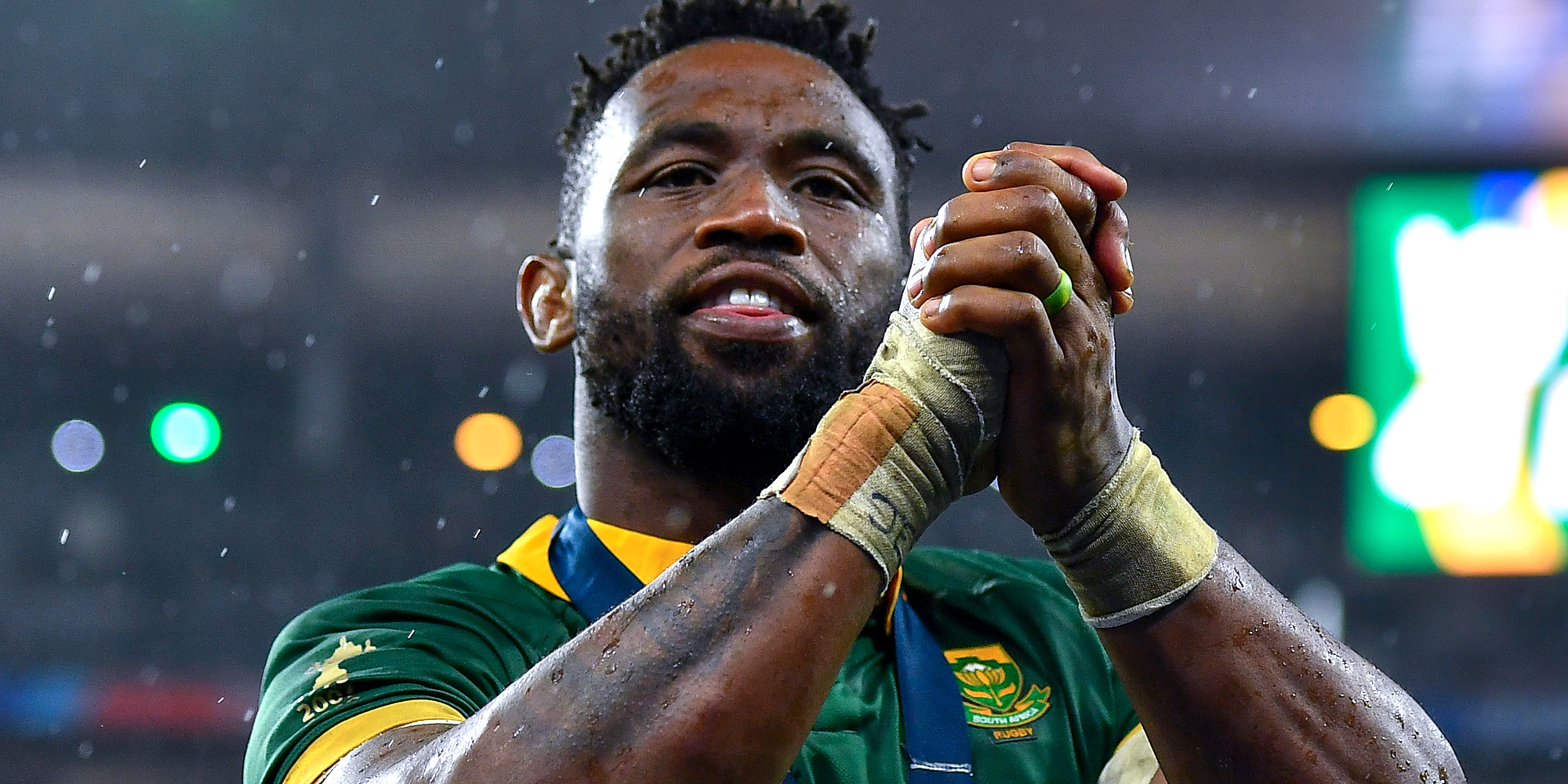Last week, I wrote about the leadership qualities of SA’s director of rugby and former national team coach Rassie Erasmus. But honestly, no examination of leadership in this Rugby World Cup campaign would be complete without including that of Springbok captain Siya Kolisi.
Now, I know, Kolisi is not short of praise and good press. Fans like winning captains just as night follows day. Of course they do — it’s natural. But over the past week, Kolisi has shown some leadership qualities that only tangentially had to do with the actual winning of the games.
My conclusion about Erasmus’ leadership style was that he’s a bit odd, a bit calculating and he has a sense of a higher order. These are not leadership characteristics you often find in books, but I think many leaders have these qualities. Over the past week, some experts in leadership have contacted me with ideas and disagreements and, honestly, it’s been edifying. As I noted before, leadership is a slippery and multifaceted concept.
But it does strike me that Kolisi’s leadership qualities are very different and no less valuable than those of Erasmus. In some ways, they are quite conventional, and I don’t mean that in a negative sense.
Consider two moments: The first is when the final whistle is blown in the match on Saturday. Kolisi runs right across the field to hug Cheslin Kolbe. Kolbe, as we all know, was sent off for the final 10 minutes of the game after instinctively lashing out at the ball as it was flying past him, in what the TMO judges considered a deliberate deflection.
It was a harsh decision, but that seems to have been the trend of the night. All Blacks captain Sam Cane was red-carded, no less for a highish tackle on Jesse Kriel. A yellow card, perhaps, but a red card seemed harsh. The point is that Kolbe, who has been magical on the field for the entire tournament, must have felt then that he had single-handedly lost the game for the Springboks. Kolbe couldn’t bear to watch; he spent most of the 10 minutes hiding his head under his shirt.
Kolisi sensed this, and his first admirable act on winning the game was to rush across the field to lift the head and relieve his stress and anxiety of his teammate.
Read more: We won! Springboks’ joy as they beat All-Blacks in Rugby World Cup final
The second incident came during the post-match interview in which he was congratulated on the back-to-back wins and asked to “tell me about this moment for you”. The first words out of his mouth were not about his actions or even those of his team, but about his opponents. “I want to give credit to the All Blacks, they took us to the end … with a man down,” and so on.
I know it is a trope of post-match press conferences to give some consolation to the losing team; I presume team captains are taught this stuff. But because of something in the phraseology or the delivery, Kolisi was convincing. The obvious point is that he has real empathy and, you know, that’s a wonderful thing.
But it’s also a leadership thing. For all of the high praise of leadership qualities heaped on people who are a little cruel and often mean, it’s refreshing to see the opposite at work; the value of empathy and kindness. Perhaps there is a role for hard-headedness in business and a different kind of role for empathy in team sports. Leadership, as I was trying to point out, is a varied thing, and often situational.
There is a bit more too; in the same post-match interview, Kolisi managed, in the space of less than two minutes, to explain what the win meant for South Africans and South Africa now, in its rather battered state:
“Our country goes through such a lot. We are bearing that hope that they have…”
https://www.youtube.com/watch?v=NYzhM0dNmR8&pp=ygUgc2l5YSBrb2xpc2kgcG9zdCBtYXRjaCBpbnRlcnZpZXc%3D
Children of the developing world working together to make things possible, on the field or in the office, it shows what we can do, etc. It was all there. He just seemed born for that moment: proud and humble. Hard to pull off if it is not genuine.
All of the politicians are going to jump on this victory; you just know it. EFF lieutenant-general Julius Malema suddenly became a rugby fan. Who knew? He saluted “his” captain, Kolisi, as though he had appointed him. President Cyril Ramaphosa will address the nation, otherwise known as climbing on the bandwagon, on Monday. And so on. But you know, honestly, these political leaders should be studying at the feet of these sportsmen, not trying to subsume their achievements.
Australian author Bryce Courtenay a long time ago wrote a book called The Power of One, which was essentially a coming-of-age story about a misfit South African boxer. But the underlying question was whether one person can really make a difference, and his conclusion was equivocal, but broadly supportive. The book came to mind obviously because of the importance of the quantity and quality of “one” in this rugby tournament. But also because the role of individuals in a team is so tricky to tease apart.
However, at least in a single respect — leadership — Kolisi has shown us something of the Power of One. DM
This article is more than a year old
Business Maverick
Siya Kolisi: Rugby, Leadership and The Power of One
Over the past week, Springbok captain Siya Kolisi has shown some leadership qualities that only tangentially had to do with the actual winning of the games.





